DIY Pest Control: 3 Household Items to Keep Bugs Out of Your Garden

Spring is here, and it’s time to start tending to your garden again! But, as much as we love watching our flowers bloom, we can all agree that garden pests can quickly turn the fun into frustration.
Luckily, you don’t have to reach for harsh chemicals—your pantry has everything you need to naturally repel bugs and protect your plants.
In this guide, I’ll share three easy household items that will help keep garden pests at bay without harming your plants or the environment.
Prevention Is Key to Keeping Pests at Bay
Preventing pests before they become a problem is the best way to keep your garden thriving.
While DIY sprays are helpful, prevention should always come first. Here are some simple steps to minimize the risk of pest infestations:
- Remove infected plants or trim infected areas and dispose of them properly. Clean your tools to prevent spreading pests.
- Use nutrient-rich soil, mulch regularly, and fertilize your plants to keep them strong and healthy.
- Keep the garden clean by clearing out debris and weeds that may attract insects.
- Rotate your crops and mix plants to avoid pests that target specific species.
- Water your plants early in the morning, and target the base of plants—wet leaves can encourage pests and disease.
- Always disinfect tools and gardening equipment to avoid transferring pests.
Tools and Materials:
I know it sounds funny, but bear with me to discover the wonders of garlic, hot sauce, and soap in the garden.
Turns out garden pests (and insects in general) don't have a taste for garlic-y, spicy food. So much the better!
So get to your pantry-or take a trip to the supermarket, because we're going to make three quick and easy pest-control sprays.
- 1-2 teaspoons of Liquid soap (Ivory or dish soap) or Bronner's, ideally organic
- 2-3 cloves of garlic
- 1-3 teaspoons of hot sauce or better, cayenne pepper
- 1/4 quart of water
- Spray bottle
1. Soap Spray Recipe
The BASIC SOAP SPRAY is useful with a wide variety of garden pests, including aphids, scale, mites, and thrips.
Why does it work? The soap dissolves the outer coating or shell of the insects, eventually killing them.
Making the SOAP SPRAY is so easy!
SOAP SPRAY STEP 1:
Start by grabbing 1/4 quart of room temperature or slightly lukewarm tap water.
Add 1 to 1.5 teaspoons of liquid soap—biodegradable is best since it’ll eventually mix with the soil.
TIP: Dish soap tends to be more concentrated, so you might want to use just a little less than a teaspoon. My personal go-to is Bronner’s soap (it's my favorite), but Ivory soap will do the trick, too.
Not sure how concentrated your soap is? Start with less than 1 teaspoon per quart, and don’t go over 2 teaspoons.
SOAP SPRAY STEP 2:
Now, add a teaspoon of oil. The oil helps smother pests and eventually takes care of them.
TIP: Canola or mineral oil works, but I prefer organic edible oils like almond or a light olive oil.
SOAP SPRAY STEP 3:
Seal up your bottle and give it a good shake so the oil blends seamlessly with the soap.
SOAP SPRAY STEP 4 (OPTIONAL):
Don’t forget to label your creation!
Grab some scissors, tape, and a marker, and jot down the ingredients and amounts.
You can even add a title—like “GARDEN SOAP SPRAY”—and a date. That way, everyone in the household knows what’s inside and how to use it.
SOAP SPRAY STEP 5:
Time to test your homemade spray!
TIP: Before you go all in, check out "A Few Things to Keep in Mind" at the end of the post.
But just to get you excited:
- TEST IT FIRST on a small area.
- Don’t use it in full sun or on a super hot day, and avoid overspraying.
- Apply it ONLY to areas with pests—after all, we don’t want to hurt the good bugs like ladybugs! (More details below.)
MAKING A GARLIC SPRAY:
Garlic spray is very similar to the soap spray, but with the added benefit of garlic, which insects can’t stand.
Turns out, garlic is a fantastic natural repellent—whiteflies, aphids, and most beetles will stay away from plants sprayed with garlic oil.
The magic happens because garlic contains compounds like diallyl disulfide and diallyl trisulfide, which are either irritating or deadly to many insects.
The oil and soap in the mix help it stick to your plant leaves, giving you a strong, long-lasting defense.
GARLIC SPRAY STEP 1:
To start, mince 2-3 cloves of garlic and mix them with 2 teaspoons of oil.
TIP: If you prefer, you can crush the garlic instead of mincing it—it works just as well!
GARLIC SPRAY STEP 2:
Mix the garlic and oil well with a spoon, then let it sit overnight. The next day, you’ll strain out the garlic from the oil.
GARLIC SPRAY STEP 3:
Now, pour 1 pint of water into your spray bottle and add 1 teaspoon of soap (use about half the amount if you’re using concentrated dish soap).
GARLIC SPRAY STEP 4:
Strain the garlic from the oil, then combine it with the soapy water.
TIP: To avoid spilling the oil (especially if your spray bottle has a narrow mouth), use a funnel under the strainer to catch any excess.
GARLIC SPRAY STEP 5:
Once mixed, close the bottle, give it a good shake, and label it with the ingredients, title, and date.
TIP: Be careful not to apply your garlic spray on a hot sunny day or when the area is sunny, as it could burn the leaves.
Also, remember that this spray will affect beneficial insects, so make sure you apply it only to the areas that are infected.
HOT PEPPER SPRAY:
The last spray I’m sharing today is the HOT PEPPER spray! If you’re dealing with mites or whiteflies, this one’s for you. However, you may need to reapply it, as it can wear off over time. The magic ingredient here is capsaicin—the compound that gives hot peppers their "heat." Capsaicin is just as irritating to insects as it is to us—ever felt the burn on your fingers after cutting a hot pepper? That’s the power we’re harnessing!
HOT SPRAY STEP 1:
Simply mix up to 2 tablespoons of hot pepper sauce, cayenne pepper, or chili powder with a few drops of biodegradable dish soap and 1 quart of water.
HOT SPRAY STEP 2:
Let the mixture sit overnight to allow the ingredients to blend.
TIP: You can use measuring spoons instead of a teaspoon, whatever works best for you.
CAUTION! Ground cayenne pepper may clog your spray nozzle, so use a strainer with tiny holes and a fine cheesecloth to filter it out. You can strain it a couple of times to make sure the mixture is smooth.
Alternatively, you can use hot sauce or liquid cayenne pepper to skip this step!
TIP: Shake your spray bottle frequently to prevent separation and only apply it to infested plants.
Also, remember to spray on a cloudy day or when the area is shaded to avoid burning the plants in direct sunlight.
PLEASE READ BEFORE YOU SPRAY
A FEW THINGS TO KEEP IN MIND:
- Start with a more diluted solution, and if needed, increase the amounts over time. It's always better to be cautious.
- ALWAYS TEST the spray on a small area before applying it to the entire plant.
- Don’t forget to spray under the leaves, where insects like to hide.
- Avoid spraying on high heat or in direct sunlight—this could burn the leaves! If the plants are already stressed (like if they’re drooping or it's very hot), the spray might do more harm than good.
- Spray in the early morning or evening, before dusk.
- Reapply after rain.
- To maintain, you can reapply once a week.
Now you're all set to give those pests a run for their money with this hot pepper spray!
As I mentioned earlier, the best weapon in my garden arsenal is COMPOST!
Not only does it add essential nutrients to your soil, but it also improves soil structure and increases the number of beneficial microbes. Plus, it’s an amazing way to reduce waste and recycle organic matter right in your own backyard.
So, the next time you’re about to toss organic waste into the trash, why not start composting instead? Your garden will thank you!
Keep Your Garden Pest-Free Naturally
With these simple, all-natural pest-control sprays, you can protect your plants without reaching for harsh chemicals.
Give these DIY solutions a try and watch your garden thrive, bug-free!
Enjoyed the project?
Resources for this project:


Comments
Join the conversation
-
 Judy Smyth Beam
on May 27, 2019
Judy Smyth Beam
on May 27, 2019
I use Irish Springs soap that I shave or grate around my plants to keep deer and rabbits from eating them. Reapply after after it rains. Once the plants get past the tender stage the little varmits will leave them alone. It's a cheap and easy way to deter pests!
-
-
 Lisa Sinclair
on Oct 14, 2019
Lisa Sinclair
on Oct 14, 2019
The pepper spray is a great way to keep deer,bunnies, etc, from nibbling on your plants, too.
-

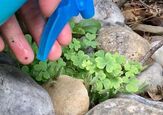

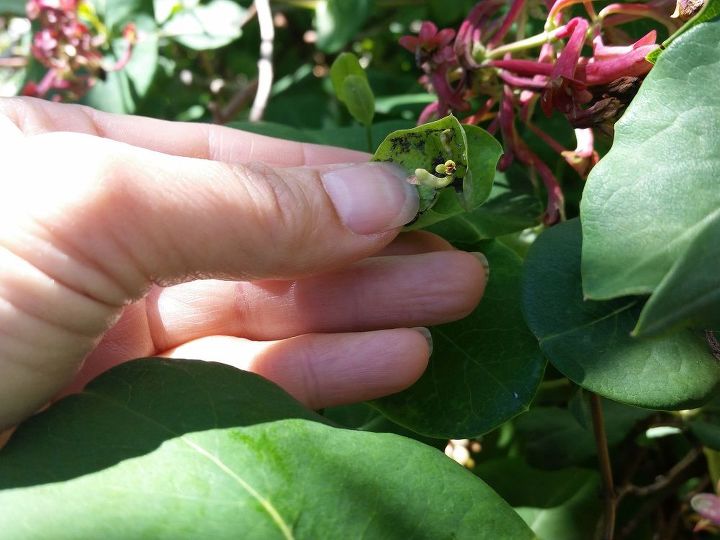























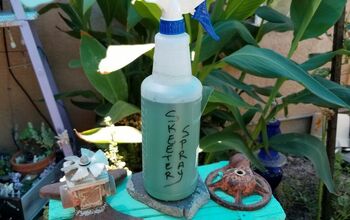

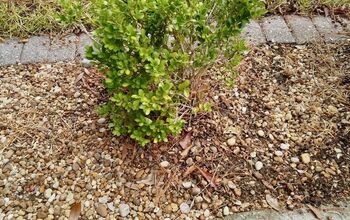
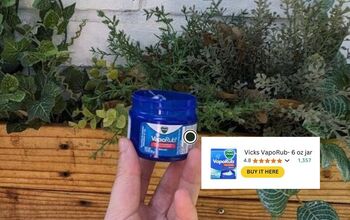
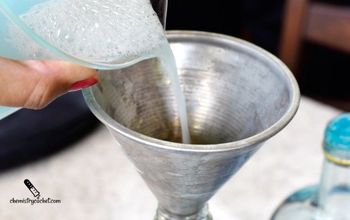
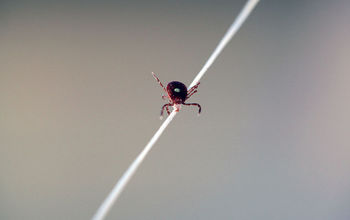
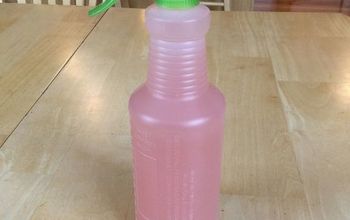
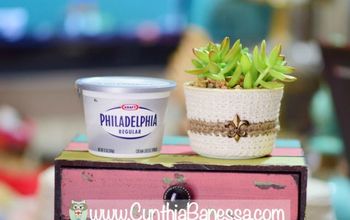
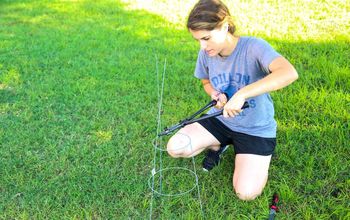
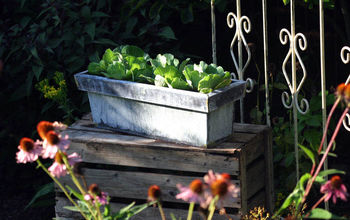
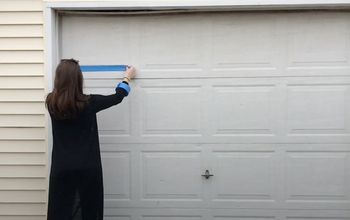
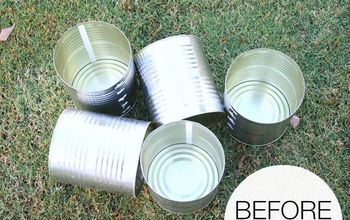

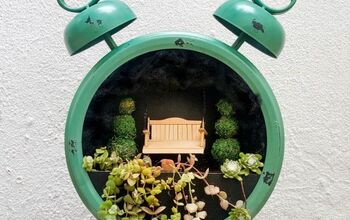
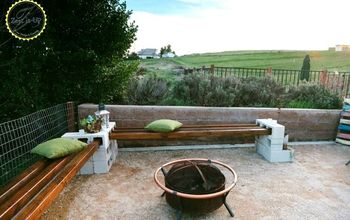

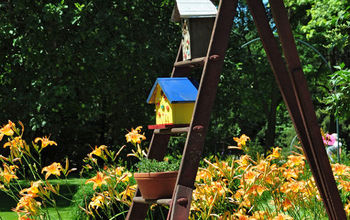
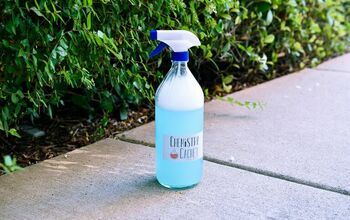
Frequently asked questions
Have a question about this project?
I have ants infestation what can I do?
Can you use the hot pepper bug spray on your lawn too
I was wondering what kind of spray can be made for fleas? I moved to Nacogdoches Texas and there is a flea problem and needed to know what kind of a spray could be used outside